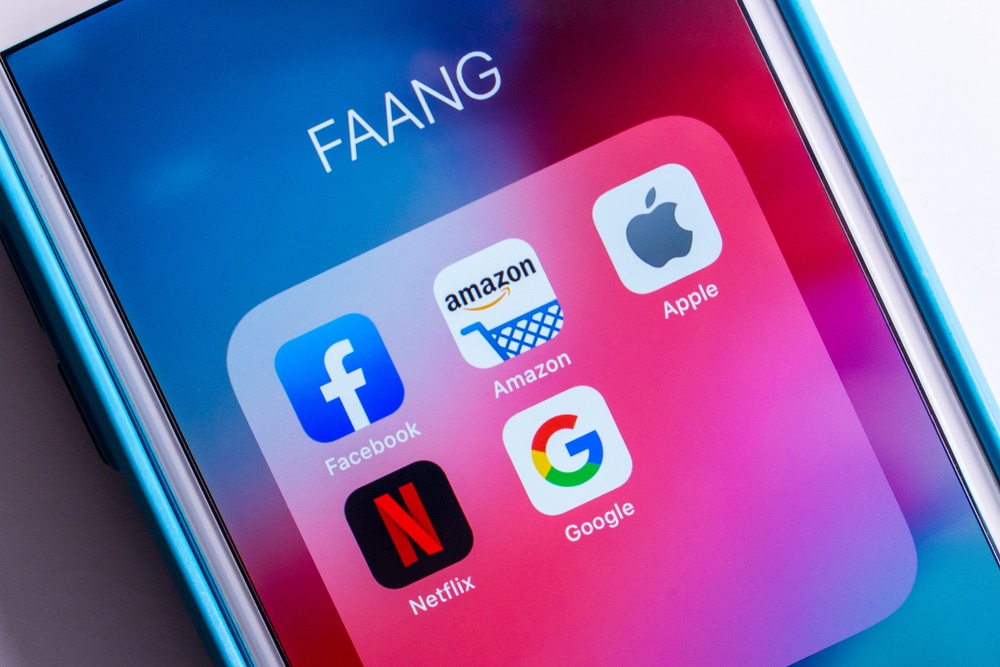How Can Startups Outcompete FAANG and Big Tech in the War for Talent?

Strategies to Attract the Best Candidates to Startup Jobs
Success as a growing company depends upon the talent you can recruit for your startup jobs. But you’re experiencing some problems.
Problems like:
- You’re finding it hard to hire your first engineer
- The best software engineers aren’t applying to your job postings
- You’re finding it’s almost impossible to retain top frontend engineering talent
The cause of all these problems is simple. How to address it is a little more complex – but you’ll have a much better handle on your approach after reading this article.
FAANG – The Recruitment Roadblock for Startups
Your issue is FAANG. Talented candidates seem to gravitate to Facebook, Amazon, Apple, Netflix, and Google. When you work for one of these big boys, you’re perceived as a member of the elite. This perception flows through to all the reasons why talented candidates target FAANG companies as their next employer, such as:
- Compensation (the big boys can afford to pay more, can’t they?)
- Reputation (FAANG looks great on a resume, doesn’t it?)
- Perks (big companies, big perks)
- Stability (Roles are better defined, the future is less volatile)
- Better projects (with those big budgets, the work is bound to be more interesting and varied, isn’t it?)
Yet, despite these attractive reasons for joining FAANG companies, some startups are winning the war for hiring talent. What is it that these startups are doing, and what can you learn from their recruitment strategies?
Ensure You Are Targeting the Right Candidates
Cultural fit is as important as employing the right skills and experience. Skills can be developed. Experience can create blinkered views. You need hires that will bring more to your company, fit in well, and believe in what you are doing and how you are doing it.
“Hire for the company, not the role itself,” advises Luca Cosentino, Product Manager at Series-A startup, and an ex-employee of Google. “Be clear in your recruiting process and define what you look for in a candidate. Then test for those competences or components.
“Look for people who are interested in the problem your company is trying to solve,” he continues, “and not for those whose primary motivation is to build a team or to have higher responsibility only.”
A Netflix software engineer, and previously a full stack engineer at an early-stage startup, who wished to remain anonymous, told us that engineers, “would also be more likely to join a startup if the work is challenging using new tools and frameworks. That way if the startup fails, they can walk away with valuable experience.”
Make Candidates Fall in Love with Your Company
Deciding to accept a job offer is like making a buying decision. Harvard professor Gerald Zaltman believes that 95% of buying decisions are driven by emotion. If you appeal to the candidate’s subconscious mind, and make them feel wanted by you, they are more likely to be receptive to an offer. At FAANG companies – because of their size – employees can become ‘lost’ and think of themselves as no more than a number on the payroll.
Our founder and managing director, George Atuahene, says:
“From what we’ve seen over the years, offer acceptance is at least 40% an emotional decision. Startups need to make sure they make engineers feel ‘wanted’ throughout the process. Get them excited about the opportunity. Part of this is out of their control – there needs to be a strong enough reason for an engineer to leave their current role and not accept a counteroffer. As recruiters, it’s part of our job to align the pain points of the engineers we represent with the right opportunity that will alleviate those pains, and coach them on deciding.”
Luca agrees. He offers this advice to candidates:
“I’d say, to maximize happiness, try to understand what motivates you and what is the best environment where to find these elements. Make sure you can distinguish relevant elements in the short and long term so that you are prepared for the next phase. Irrespective of where you work, you want to find a place where your motivation can be transformed into deliverables that bring you one step further every day. This positive loop reinforces over time and maximizes individual and team’s happiness.”
Startups who appeal to a candidate’s inner desires and wishes are more likely to be successful in their pursuit of that candidate. Learn what the most talented candidates want, and then target them by demonstrating how you provide it.
Provide a Clear Path
Joining a startup is riskier than joining a FAANG company. But, for the right opportunity, talent will come along for the ride. The secret is to be upfront and honest about the present and future of the company.
“Be very transparent with employees about the ups and downs of the company’s progress,” says our confidential contributor.
“I’d say the main value proposition is this one,” says Luca. “Clarity of the trajectory is directly correlated with the upside that the candidate would like to have when evaluating the startup offer. Clear plans lead to clear responsibilities and clear forecasts (which can change, of course, but that’s part of the game).”
Streamline Your Hiring Process
In his role, Luca says that he observes two main reasons for startups losing a candidate. Either that there was no fit, or that the hiring process crested doubt in the candidate.
“There’s not much you can do if there is no fit. But losing candidates because of mistakes in the process is a huge cost,” Luca says.
George agrees. His recruitment teams have interviewed countless software engineers, who currently work for Facebook, Google, Stripe, and many other engineers who work for early-stage startups.
“One of the biggest areas for improvement is the interview process,” George says. “How you treat a candidate in your interview process is often seen as a preview of what it will be like to work for your startup. If your interview process takes more than two weeks, has more than three steps, or requires engineers to spend more than a couple of hours on a technical assessment, then you’re running the risk of damaging your employer brand.”
FAANG companies leverage their massive employer brands, and can afford to draw out their hiring process. They benefit from a larger candidate pool, and robust university recruiting/internship programs (not to mention a higher level of perceived stability and public stock. “Startups don’t have those things working in their favor,” says George, “so they need to compete with speed (directly and indirectly) ‘selling’ engineers throughout the interview process on their company.”
In short, if you treat an engineer who you want to hire just as you would treat a potential customer, that will drastically improve your response and offer acceptance rates.
How Can a Recruiter Help Your Startup to Hire Talent?
A specialist recruiter with specific experience in your market, your location, and finding the people you need should be helpful to you in several ways. They become advocates for your startup, ensure that you target the right candidates (those who are a match on all levels), provide clarity, and streamline your hiring process while delivering a wider and deeper talent pool to you.
“In competitive hiring markets like San Francisco, Austin, and New York,” says George, “the initial burden of proof is less on the engineer to show that they are a fit for a position and more dependent on the company to pitch their unique value proposition – this is one of the advantages of working with a specialized recruitment firm. We have relationships with many engineers, understand what they’re looking for, and can pitch startup opportunities in ways that will instantly get their attention.”
From personal experience, Luca intimates that limiting your search to FAANG employees (current or previous) is a mistake.
“Having worked at FAANG doesn’t necessarily mean that a candidate works well with the uncertainty associated with a startup,” he says. “I encourage startup founders to test for previous examples where the candidate had to figure out an unknown solution to a new problem, possibly with limited information and multiple possible routes. That’s very different from building/selling a feature of a well-established product, mainly because the timing of the established product makes it way clearer to understand.”
George notes how Kofi Group make a real difference to hiring for startups:
“We develop long-term relationships with the engineers we represent (sometimes over the course of one-two years). That gives us a ton of visibility into their pain points, what opportunities they explore, and their decision-making processes. There are several hard factors such as challenging work, competitive compensation, equity, a strong benefits package, but there are also some other subtle factors that many startups should pay more attention to. That’s where we come in, to attract the talent that would otherwise head toward FAANG.”
To improve your hiring process and attract the most talented people to your startup, get in touch with Kofi Group today.
Share This Blog
Kofi Group has helped 100+ startups hire software and machine learning engineers. Will fill most of the roles we recruit on with 5 or less candidates presented.
Contact us today to start building your dream team!


